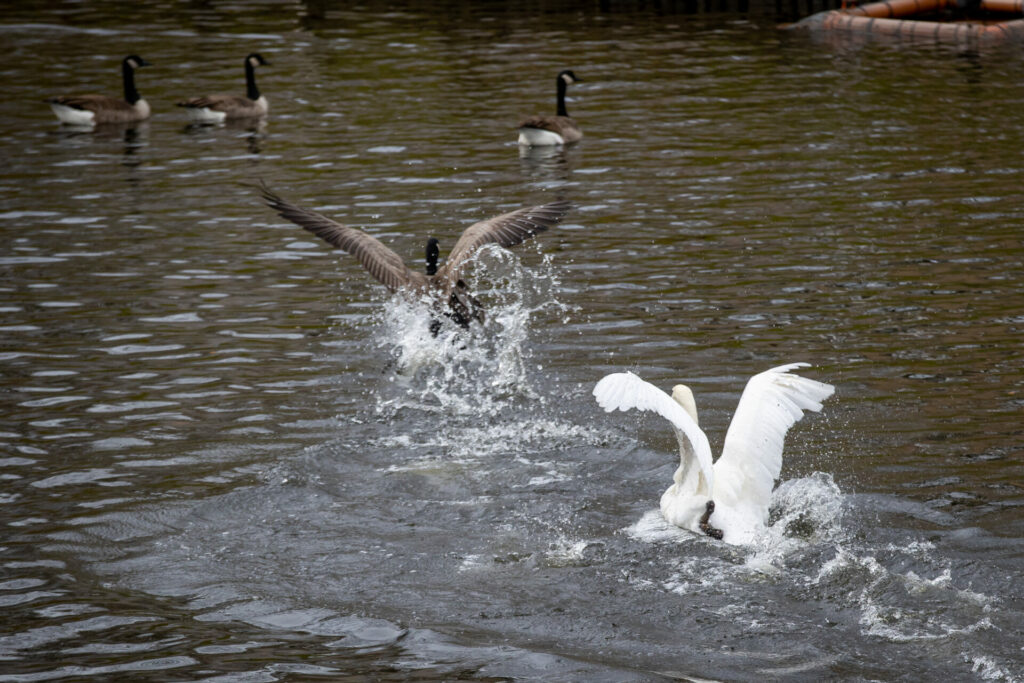A new outbreak of avian influenza has been detected at the Lacs de L’Eau d’Heure near Cerfontaine in Wallonia. Several dozen birds were found dead, stranded along the banks of the lakes, Nicolas Yernaux, spokesperson for the Public Service of Wallonia (SPW) announced on Wednesday.
“We discovered the carcasses at the beginning of last week. The birds were victims of the classic variant of avian influenza (H5N1), the most pathogenic variant,” he said.
Avian influenza, also known as “bird flu”, is a viral infection that affects birds, both wild, domestic, and farmed, which has an extremely high mortality rate. In recent years, there has been an increase in outbreaks across the world as the disease evolves.
“After the discovery, at the end of the summer, of large pockets (of the disease) in groups of pheasants in the province of Hainaut and Liège, we can see today that avian flu has spread to the province of Namur and on the site of the Eau d’Heure lakes,” the spokesperson added.
The disease mostly attacks water birds such as seagulls, coots, and geese. Experts and farmers across the world have warned that the pandemic of bird flu may soon be hard to contain, ramping up and affecting commercial poultry production, posing problems for the global food supply.
“This demonstrates once again that avian flu is no longer seasonal but that it is becoming endemic: it is establishing itself more and more permanently in our territory,” Yernaux said.
Related News
- Bird flu confirmed in dead seagulls found in Brussels
- Belgian peregrine falcons hit hard by bird flu
To date, no human cases of avian flu have been detected and the risk of transmission to humans remains low. However, as a precautionary measure, it is still recommended to avoid physical contact with birds suspected to be infected with avian flu.
Since 5 October, professional breeders across Belgium and the rest of Europe have been required to confine their poultry to prevent the spread of the disease. “No more hens are laying in the open at the moment,” the spokesperson said. This measure will continue until further notice.
Citizens can report sick or dying birds by calling 1718 in Wallonia or 0800 99 77 in Flanders.

